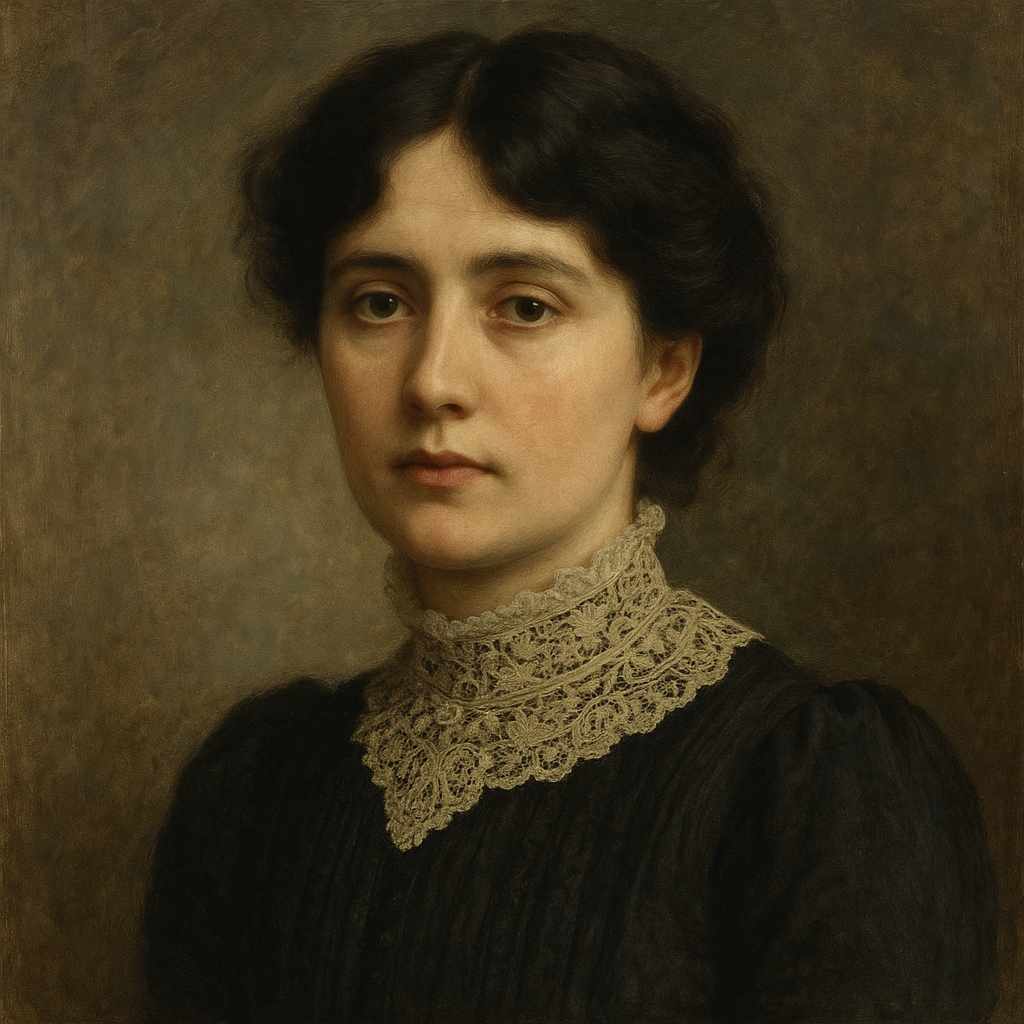May Eve
Nora Hopper Chesson
1871 to 1906

There's a crying at my window, and a hand upon my door,
And a stir among the yarrow that's fading on the floor:
The voice cries at my window, the hand at my door beats on,
But if I heed and answer them, sure, hand and voice are gone.
You would not heed my calling once, and now why would I hear?
You would not hold my wistful hand, but let it fall, my dear:
You would not give me word or look, but went your silent way,
Oh, wirrasthrue, dumb mouth of you that had so much to say.
Be still, my dear: I heed, I hear, but cannot help you now,
The rose is dead that was so red, and snow's upon her bough.
Be still, be still a little while, for I shall surely come
And kiss the sorrow from your eyes, and from your kind lips dumb.
Be patient now, avourneen! you may not lift the latch:
Go hence: the wind is bitter cold that whistles through the thatch.
The wind is cold, and I am old, but you're young and fair to see,
And my heart turns to you night and day, my fair love leaving me!
Nora Hopper Chesson's May Eve
I am busy working to bring Nora Hopper Chesson's "May Eve" to life through some unique musical arrangements and will have a full analysis of the poem here for you later.
In the meantime, I invite you to explore the poem's themes, structure, and meaning. You can also check out the home page for other musical arrangements or learn more about Nora Hopper Chesson's life and contributions to literature.
Check back soon to experience how "May Eve" transforms when verse meets melody—a unique journey that makes poetry accessible, engaging, and profoundly moving in new ways.
Want to join the discussion? Reopen or create a unique username to comment. No personal details required!



Comments
No comments yet. Be the first to comment!